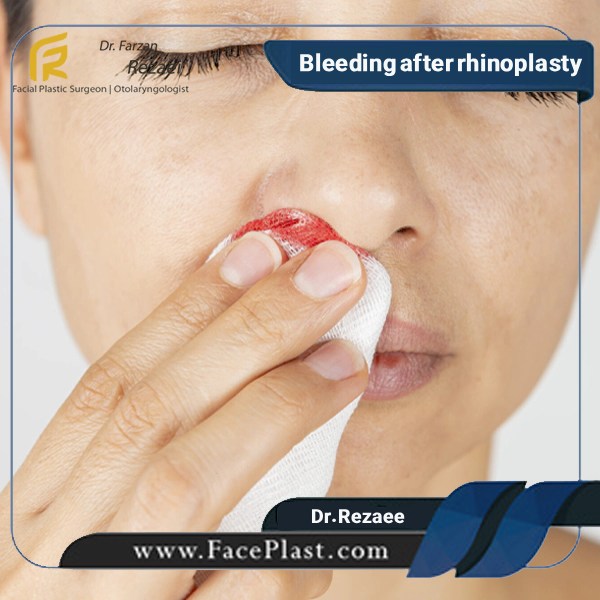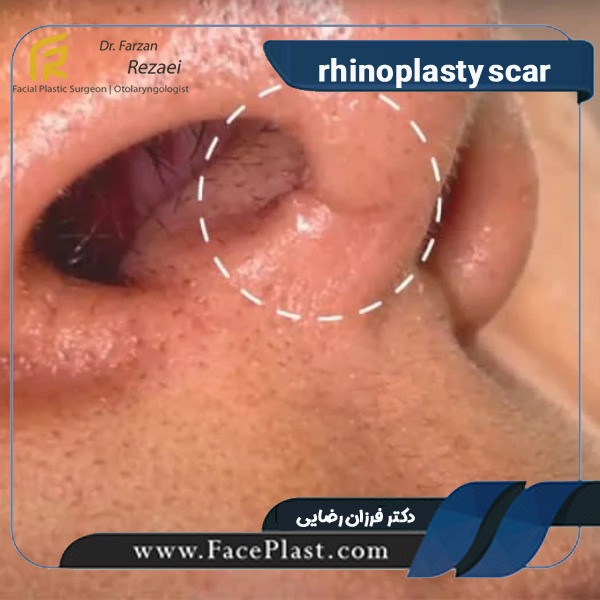Sleeping After Rhinoplasty
Certainly, after your nose surgery is complete and you return home to rest, you may be concerned about which position to sleep in to avoid damaging your nose. Sleeping after rhinoplasty is crucial for providing the body with the energy it needs to heal and repair the surgical area. However, you must also pay attention to the correct body posture and position to avoid putting pressure or causing harm to your nose. In the following, questions such as how to sleep after rhinoplasty and why sleep is so important for recovery are addressed.

The Importance of Paying Attention to Sleep After Rhinoplasty
In recent decades, rhinoplasty has become one of the most popular surgeries among men and women, and there is a good reason for this popularity. The nose is considered one of the most prominent features of the face, and any deformity in it can cause embarrassment and discomfort for individuals. This cosmetic procedure can quickly resolve concerns about the shape or profile of the nose and give your face a more attractive and balanced appearance. But even if your surgery goes exactly according to plan, it’s essential to pay enough attention to one of the most important aspects of post-surgery care: the way you sleep after rhinoplasty. This aspect of care can be just as important in advancing the recovery process as the surgery itself.
Avoid Sleeping on Your Stomach After Rhinoplasty
Even though bandages and splints protect your nose during sleep to some extent, sleeping on your stomach is highly discouraged. This position greatly increases the risk of damaging your nose and could ruin the results of your surgery. In general, sleeping on your side can put similar pressure on the nose as sleeping on your stomach, potentially blocking the nostrils. This could cause discomfort, and since blowing your nose is prohibited after surgery, breathing through your nose might become difficult.
How Long Should You Sleep in an Elevated Position After Rhinoplasty?
If you have trouble sleeping on your back after rhinoplasty, you may wonder when you can return to your usual sleeping position. You should sleep on your back with your head elevated for at least one week. Generally, it is recommended to wait about 10 to 14 days before returning to your usual sleeping position. If sleeping on your back is relatively comfortable for you, itÔÇÖs best to maintain this position as long as possible to achieve the best results.
Why Is Sleeping After Rhinoplasty So Important?
The importance of rest in facilitating a smooth and rapid recovery after rhinoplasty cannot be ignored. In the first days and weeks following surgery, your body will need a great deal of energy to heal the surgical area, and one of the main sources of this energy is sleep. On the other hand, during this period, your nose will be highly sensitive, and improper sleeping positions can quickly derail the recovery process and jeopardize the surgeryÔÇÖs results. Although sleep plays an essential role in supporting and boosting the immune system, itÔÇÖs interesting to know that proper sleeping posture also improves blood circulation and helps prevent accidental damage to the nose, thus speeding up recovery.
How Should We Sleep After Rhinoplasty?
Sleeping on your back is the correct position after nose surgery. Ideally, your head should be elevated to ensure the best sleep position, as this helps reduce swelling and congestion. Placing several pillows under your head will help your body stay in the correct sleeping position. You can also rest in a comfortable in a leaning position.
While asleep, you might accidentally roll onto your side or stomach, but you must avoid this at all costs, as sleeping on your side or stomach can put your nose in a vulnerable position, increasing the risk of serious injury.
Can I sleep on my side 2 weeks after rhinoplasty?
At two weeks after rhinoplasty, most surgeons still recommend avoiding sleeping on your side. The healing tissues, cartilage, and nasal bones are still delicate, and side sleeping can put uneven pressure on your nose, potentially affecting the shape or results of the surgery. Ideally, you should continue sleeping on your back with your head elevated for at least 3ÔÇô4 weeks, or until your surgeon clears you. Always follow your doctorÔÇÖs specific instructions, since recovery timelines may vary depending on the complexity of your surgery.
The Best Position to Sleep After Rhinoplasty
Placing pillows under your head can create the proper position for sleeping after nose surgery. You can also place extra pillows around your body to prevent rolling over while asleep. Using a neck pillow can also help prevent head movement.
The Necessity of Sleeping Alone After Rhinoplasty
If you typically sleep with your partner or pet, during the recovery period it is a good idea to prevent it because it may cause accidental hits from hands, elbows, or paws while you sleep.
What happens if I accidentally sleep on my side after rhinoplasty?
If you sleep on your side , keep calm and sleep on your back as soon as possible. If you feel something that is not normal like as unusual swelling , pain after rhinoplasty or nose structural changes call your surgeon.





